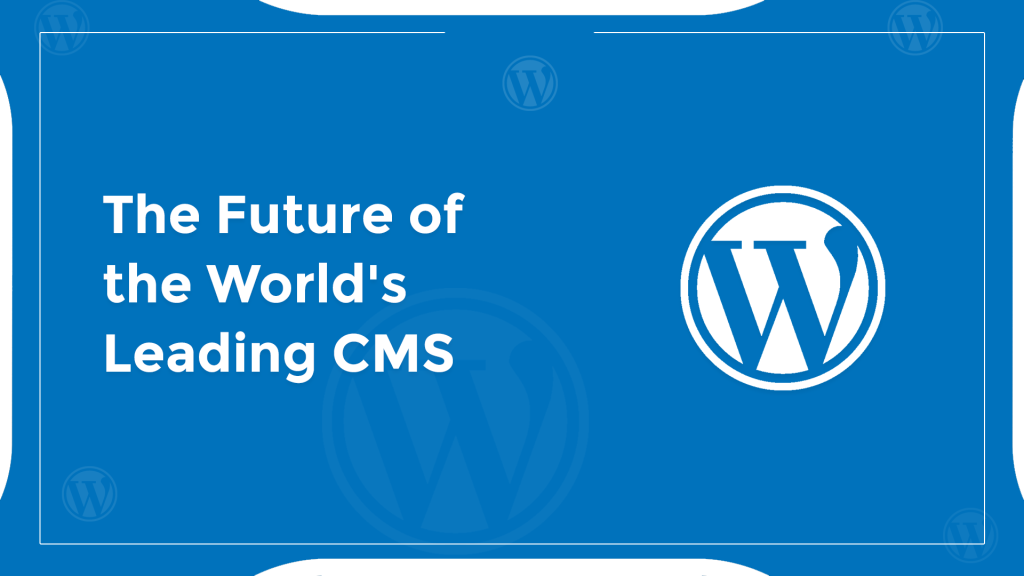WordPress powers over 43% of the web, making it the undisputed leader among Content Management Systems. From a simple blogging platform, over the years, it turned out to be a very strong powerhouse for building everything from small business websites to large-scale e-commerce platforms.
But with constantly changing technologies, user expectations, and competition, what does the future hold for WordPress? Whether you are a business owner, a developer, designer, or someone just beginning to explore web development, understanding where WordPress is going will help you prepare for the opportunities ahead.
The State of WordPress Today
Before looking to the future, let’s take stock of where WordPress stands today:
Leading in the CMS Market: WordPress still holds the largest market share due to its open-source nature, ease of use, and vast plugin and theme ecosystems. Gutenberg Editor Evolution: The Gutenberg block editor brought a fresh, flexible approach to creating content with the aim to rival drag-and-drop builders like Elementor and Wix. Versatility: WordPress supports everything from blogs to enterprise-level applications, proving its adaptability to various uses.
However, with great fame comes great responsibility. Website builders, SaaS solutions, and headless CMS frameworks challenge the platform.
Key Trends Shaping the Future of WordPress
- Growth in Full-Site Editing (FSE)
The Gutenberg project keeps improving continuously, and Full-Site Editing is all set to change how WordPress users create a website.
What to Expect: Being able to customize headers, footers, and everything in between with blocks will provide more power to non-technical users, while developers will have more flexibility.
Impact: As this is going to make WordPress a more competitive alternative to website builders like Squarespace and Shopify.
- Headless WordPress: The API-First Approach
Headless WordPress decouples the front-end from the back-end and allows developers to use modern JavaScript frameworks like React, Vue.js, or Angular in the creation of dynamic websites.
Why It Matters: Headless architecture is ideal for fast, scalable, and interactive applications.
Future Implications: As more businesses begin to demand faster and omnichannel solutions, the momentum for headless WordPress will continue.
- Focus on Performance and Speed
With Google’s Core Web Vitals being a vital ranking factor, WordPress is under pressure to perform better out of the box.
What’s happening: The WordPress team is working relentlessly on optimizing the core codes, themes, and plugins to offer a better loading experience.
Opportunities: Fast-loading WordPress websites will provide more conversions and SEO benefits for businesses.
- AI and Automation Integration
Artificial Intelligence will revolutionize the way we design and manage websites.
Current Examples: AI-powered tools like WP Engine’s Content Performance and Jetpack’s AI Assistant are helping users analyze content and perform tasks with automation.
Future Potential: Expect advanced AI plugins for automated SEO optimization, personalized content recommendations, and real-time website maintenance.
- Expanding E-Commerce Capabilities
WooCommerce, WordPress’s e-commerce solution, already powers a large chunk of online stores.
What to Watch For: Increased integrations with AI-driven tools, AR shopping experiences, and advanced analytics that will keep WooCommerce ahead in leading e-commerce trends.
Opportunities for Businesses: Affordability and flexibility in WooCommerce will benefit small businesses and entrepreneurs even more.
- Emphasis on Accessibility
Accessibility is no longer optional. WordPress will continue improving to ensure greater compliance with global standards such as WCAG.
What this means is that with more accessible themes and plugins, it will be easier for all users, including those with disabilities, to better interact with WordPress-powered websites.
What does this mean for you?
For Business Owners:
More Competitive Websites: With a renewed focus on performance, accessibility, and design flexibility, WordPress will help keep you competitive in the digital marketplace.
Cost-Effective Growth: On-going advancements, yet WordPress remains budget-friendly for feature-packed website builds.
For Developers:
Opening New Opportunities: Knowledge in Gutenberg, FSE, and headless WordPress will be highly salient with their prevailing dominance in the web development space.
Smoother Workflows: Changes in new tools and APIs will ease building, maintaining, and scaling a WordPress site.
For Designers:
Increased Creativity: With their future reliance on block-based design and FSE, there will be even more ways to create beautiful and user-friendly sites.
Wider Audience: Designers will remain responsible for helping non-technical users exploit WordPress advanced features.
Ease of Use: Improvements in WordPress are making website development easier; even non-technical users can create professional-looking sites with ease.
Learning Opportunities: For every one who wants to begin learning, there are plenty of tutorials, forums, and tools available at the WordPress community.
Challenges that Remain for WordPress
While the future of WordPress is promising, it must address certain challenges:
Security Concerns: As a popular CMS, WordPress is often targeted by hackers. Strengthening security will remain a priority.
Plugin Ecosystem Issues: With over 60,000 plugins available, compatibility and quality control can be a concern.
Staying Competitive: Competing with SaaS solutions like Wix and Shopify will require continued innovation and marketing.
Case Study: A Glimpse Into WordPress’s Potential
One of our clients, an e-commerce company of growing repute in Nepal, made a switch from a custom CMS to WooCommerce. By capitalizing on the flexibility and scalability of WordPress, we were able to:
Reduce operational costs by 25%.
Enhance page load speeds by 40%.
Enhance SEO rankings within two months, with a 50% increase in organic traffic.
Service Related: E-commerce Website Development – Explore how we help businesses build robust online stores with WooCommerce.
Conclusion
The future of WordPress is really bright and full of possibilities. As it continues to evolve with the demand of modern users, it will continue to be one of the most powerful players in web development. From Full-Site Editing to headless architecture, WordPress is going to lead the way in empowering businesses, developers, and designers with the tools they need to win in a digital-first world.
Ready for the future with WordPress?
Whether you are creating a new website or improving an existing one, our team is committed to harnessing state-of-the-art WordPress technologies for your benefit. Feel free to contact us today and let’s talk about how we can keep you ahead in this change.



